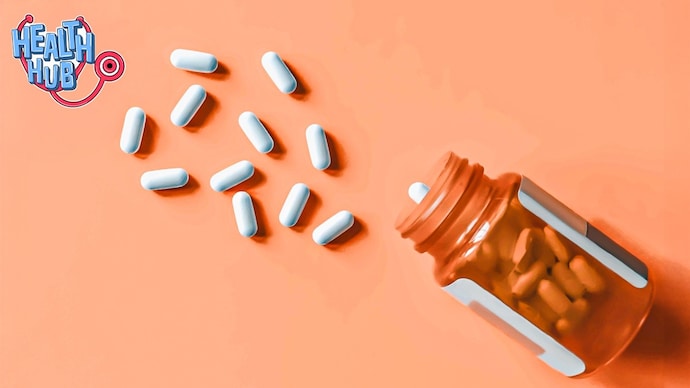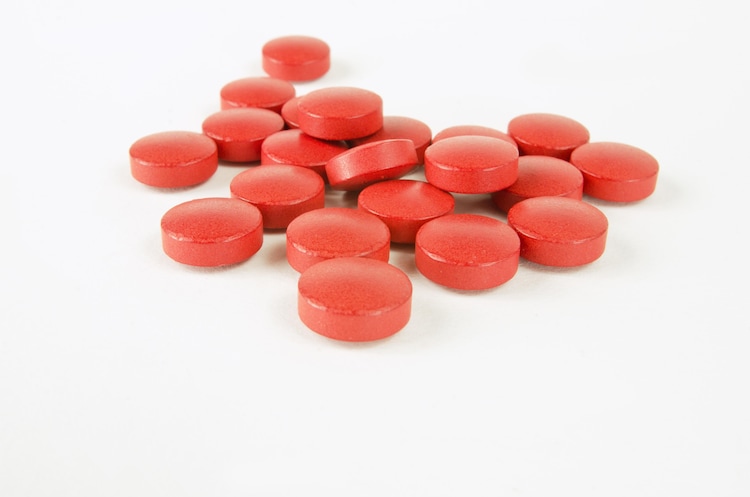This popular heartburn medicine is banned in the US but is widely sold in India. Why?
India will continue to allow the sale of ranitidine, a drug under investigation for potential cancer risks due to NDMA impurities.

Popular heartburn drug ranitidine, which has long been under investigation, will continue to be available in India as the government has confirmed that it has no plans to ban its manufacture or sale.
The government had informed the Rajya Sabha earlier this month that the Central Drugs Standard Control Organization (CDSCO), India’s drug regulatory body, had raised safety concerns regarding the presence of the potentially harmful impurity N-nitrosomethylamine (NDMA) in ranitidine. Steps have been taken to remove it.
All about ranitidine?
Ranitidine was first developed in Europe in 1981 by Glaxo Holdings Ltd., now part of GlaxoSmithKline (GSK) plc. It received first US approval in 1983 along with 31 other countries. It was launched as a prescription drug under the name Zantac.
Until 1995, Zantac (ranitidine) was sold as an over-the-counter medication.
Now known as ranitidine, this drug is a histamine-2 blocker (salt), which reduces the amount of acid made in the stomach. It is used in the treatment and prevention of stomach and intestinal ulcers and gastroesophageal reflux disease (GERD).
According to the National Library of Medicine (NIH) under the National Center for Biotechnology Information, ranitidine inhibits both gastric acid secretion and basal gastric secretion, which is stimulated by secretagogues such as histamine and pentagastrin.

While ranitidine is now banned in the US, Europe, Australia and other countries, it is widely sold in India under the brand names Aciloc, Rantac and Zinetac. The generic version of Ranitidine costs only Rs 6 per tablet strip at government-run Jan Aushadhi shops.
Ranitidine in controversy
In 2020, the Food and Drug Administration (FDA) – the US drug regulator – suspended the manufacturing and sale of ranitidine because, in 2019, scientific evidence emerged that the heartburn drug interacts over time to form a potentially carcinogenic compound called N-. Effectiveness may also be lost. Nitrosomethylamine (NDMA).
The drug was found to contain low levels of NDMA, a substance labeled as a human carcinogen by the US health agency National Institutes of Health. It has been linked to cancer of the stomach, esophagus, nasopharynx, and bladder. Research shows that heat and prolonged storage may cause this contamination.
The US banned the drug based on a risk-benefit assessment. In 2020, the FDA reported that while low levels of NDMA are commonly found in food and water and are generally safe, long-term exposure to high levels may increase the risk of cancer.
In October this year, GSK, which originally marketed the drug, said it would pay more than $2.2 billion to settle thousands of lawsuits in the US by mid-2025 over claims that Zantac caused cancer. .
The company reached a settlement with 10 law firms representing approximately 80,000 claimants, resolving 93% of all pending cases.
Additionally, GSK will pay $70 million to settle a whistleblower lawsuit by Valisure that accuses the company of concealing the potential cancer risks of Zantac from the US government.

Despite the settlement, GSK has not admitted any wrongdoing. In a statement to investors, the company said there is “no consistent or credible evidence” linking Zantac to cancer but said the settlement helps “eliminate significant financial uncertainty.”
Following the FDA’s decision, several other regulatory boards around the world banned or suspended the drug.
Not just Zantac by GSK The FDA ordered a nationwide recall of all brands of this drug, leading to an increase in lawsuits against drug companies like Pfizer, Boehringer Ingelheim, Sanofi, and GSK that were marketing it.
India’s Health Ministry addressed the issue in 2022 and removed ranitidine from the National List of Essential Medicines (NLEM).
Although GSK had recalled Zantac from India in 2019, other brands and generic versions of ranitidine are still sold.
Evidence of cancer in ranitidine?
While ranitidine has been on the radar for more than four years, it is widely sold under different names in India.
According to Dr. Anil Arora, Chairperson, Institute of Liver Gastroenterology and Pancreatico Biliary Sciences, Sir Ganga Ram Hospital, ranitidine is a time-tested drug that can be used as adjunctive therapy in patients taking aspirin and other painkillers like NSAIDs for a long time. It is also done in. (non-steroidal anti-inflammatory drugs) to protect the stomach lining from the harmful effects of these drugs.
Although it has been removed from the list of essential medicines, it has not been banned yet. Dr. Arora said, since this decision, the sales of Ranitidine in India have declined by only 2%.
“Current studies have not conclusively proven that ranitidine directly causes cancer in humans. However, NDMA, a known carcinogen, was found in ranitidine stored at high temperatures at levels exceeding the acceptable daily limit (0.096 mcg) Long-term exposure to high levels of NDMA is associated with cancer risks, making it a potential public health concern,” said Manipal Hospital’s consultant medical oncologist. Dr. Baswantrao Mallipatil told India Today Digital.
Due to this uncertainty, some countries, including India, have refrained from imposing a complete ban, the expert said. Instead, the emphasis has been on monitoring its use and promoting safer alternatives.
NDMA is a yellow, volatile chemical of the nitrosamine family. It can be found in tobacco smoke and some foods, especially nitrite-preserved items such as cured meats. It can also form in the stomach during the digestion of certain plant-based foods such as tea, wine or apples, although in much smaller amounts.
The WHO’s international agency for research on cancer classifies NDMA as a probable human carcinogen.

Senior pharmacologist Dr Shantanu Tripathi explained that NDMA is formed in the active pharmaceutical ingredient (API) of ranitidine due to a degradation reaction between ranitidine molecules in the solid state, although the exact mechanism is not fully understood.
The FDA allows only 96 nanograms (0.096 micrograms) of NDMA in finished medications, but some batches of ranitidine were found to exceed this limit.
However, a Korean study analyzing more than 25,000 patients found no association between ranitidine and cancer. It was concluded that the use of ranitidine does not increase the overall risk of cancer or major types of cancer.
The health ministry had earlier this month said the government has reviewed the international findings of bodies like the FDA and the European Medicines Agency (EMA) regarding NDMA in ranitidine, but under Section 26A of the Drugs and Cosmetics Act, 1940. No restrictions are being considered. At this time.
CDSCO will start testing ranitidine samples for NDMA, direct manufacturers to verify their products and ensure compliance with safety standards.
The drug regulatory body has also directed its regional offices to collect and analyze samples to monitor NDMA levels in ranitidine formulations.
To address safety concerns, the Indian Pharmacopoeia Commission has included a chapter on nitrosamine impurities in the 9th edition of the Indian Pharmacopoeia (IP) 2022, which provides methods to analyze impurities like NDMA and establishes acceptable intake limits.




